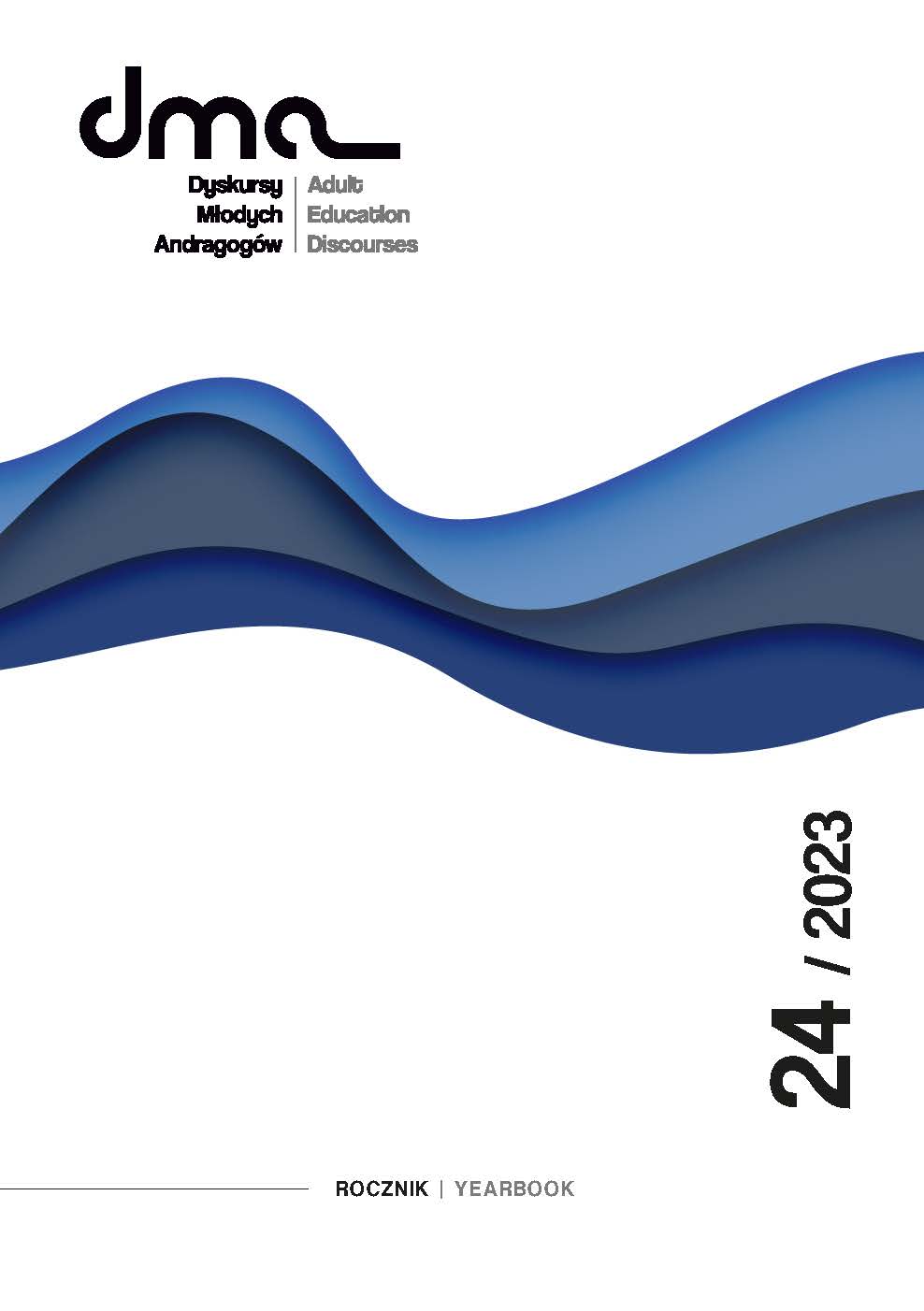Abstrakt
In this essay, the author intends to examine how his experience isolating at home during the COVID-19 pandemic unfolded as a generative self-study experience. After a chance discovery of old photos and artifacts from his teenage years, he began a currere (a self-study of educational and curricular associations) from when he was a high school (secondary) student. In this currere he reconstituted more than remembered the past, emphasizing free association in the four stages (regressive, progressive, analytic, synthetic) of currere. In the study he exposes the distortion of his memories in relation to dominant (and marginalizing) normative discourses and discusses their erasure. In this process he tells how he experienced an epiphany in the recovery of a youthful narrative of joy, hope, and resistance. This initial study, in which the author emphasized the value of subjectivity, laid the foundation for additional projects examining the role of subjectivity more broadly in academic studies. These projects included an edited book on Applied Linguistics and a special journal issue on the topic of curricular epistemicide and erasure.
Bibliografia
Apple, M. (1975) The hidden curriculum and the nature of conflict. In: W.F. Pinar (ed.) Curriculum theorizing: The reconceptualists. Berkeley, CA: McCutchan, 95-119.
Bakhtin, M.M. (1981) The dialogic imagination. Austin: The University of Texas Press.
Bombay, A., Matheson, K. & Anisman, H. (2014) The intergenerational effects of Indian Residential Schools: Implications for the concept of historical trauma. Transcultural Psychiatry, 51(3), 320-338.
Campbell, J. & Ford, D. (1969) Reflections of my life. London: Decca Records.
de Villiers, N. (2012) Opacity and the closet: Queer tactics in Foucault, Barthes, and Warhol. Minneapolis/London: University of Minnesota Press.
Dimitriadis, G. & McCarthy, C. (2001) Reading and teaching the postcolonial: From Baldwin to Basquiat and beyond. New York: Teachers College Press.
Eisner, E.W. (1985) The educational imagination: on the design and evaluation of school programs. 2nd edn. New York: Macmillan.
Flinders, D.J., Noddings, N. & Thornton, S.J. (1986) The null curriculum: Its theoretical basis and practical implications. Curriculum Inquiry [online], 16(1), 33-42. Available at: https://doi.org/10.1080/03626784.1986.11075989.
Flores, R. (2002) Remembering the Alamo: Memory, modernity, and the master symbol. Austin: University of Texas Press.
Foucault, M. (1972) The archeology of knowledge. New York: Pantheon Books.
Foucault, M. (1990) The history of sexuality. Volume I. New York: Vintage.
Greene, M. (1971) Curriculum and consciousness. Teachers College Record, 73(2), 253-269.
Jagger, M. & Richards, K. (1966) Have You Seen Your Mother, Baby, Standing in the Shadows? London: Decca Records.
McLaren, P. (1989) Life in schools: An introduction to critical pedagogy in the foundations of education. New York, NY: Longman.
Oberg, A. & Wilson, T. (1992) Side by side: Being in research autobiographically. Educational Insights [online], 7(2). Available at: http://ccfi.educ.ubc.ca/publication/insights/v07n02/contextu alexplorations/wilson_oberg/ [6.01.2023].
Paraskeva, J.M. (2016) Curriculum epistemicide: Towards an itinerant curriculum theory. New York: Routledge.
Pinar, W.F. (2005) Curriculum. In: S.J. Farenga & D. Ness (eds.) Encyclopedia of Education and Human Development. Armonk, NY: M.E. Sharpe, 3-47.
Pinar, W.F. (2012) What is curriculum theory? New York: Routledge.
Pinar, W.F., Reynolds, M.W., Slattery, P. & Taubman, M.P. (2008) Understanding curriculum. New York: Peter Lang.
Prikryl, J. (2010, April 14) Extravagant disorder. The Nation [online], 29-33. Available at: https://www.thenation.com/article/archive/extravagant-disorder/ [19.02.2023].
Restak, R. (2022) The complete guide to memory: The science of strengthening your mind. New York: Skyhorse Publishing.
Sameshima, P. & Irwin, R.L. (2008) Rendering dimensions of liminal currere. Transnational Curriculum Inquiry [online], 5(2). Available at: http://nitinat.library.ubc.ca/ojs/index.php/tci. [22.8.2021].
Sawyer, R.D. (2017) Tracing dimensions of aesthetic currere: Critical transactions between person, place, and art. Currere Exchange Journal, 1(1), 89-100.
Sawyer, R.D. (2022a) Queer Narrative Theory and Currere: Thoughts toward queering as a method of queer (curricular) self-study. Journal of Curriculum Theorizing [online], 37(1), 23-38. Available at: https://journal.jctonline.org/index.php/jct/article/view/981 [6.01.2023].
Sawyer, R.D. (2022b) Confronting normative autobiography conventions at the intersection of queer literary theory and currere: A fluid high school homecoming. Currere Exchange Journal, 6(1), 2-14.
Sawyer, R.D. & Norris, J. (2013) Duoethnography: Understanding Qualitative Research. Oxford: Oxford University Press.
Sawyer, R.D. & Norris, J. (2015) Hidden and Null Curricula of Sexual Orientation: A Duoethnography of the Absent Presence and the Present Absence. International Review of Qualitative Research [online], 8(1), 5-26. Available at: https://doi.org/10.1525/irqr.2015.8.1.1.
Seidman, I.E. (1991) Interviewing as qualitative research. New York: Teachers College Press.
Spring, J. (2016) Deculturalization and the struggle for equality: A brief history of the education of dominated cultures in the United States. New York: Routledge.
Warhol, R. & Lanser, S.S. (2015) Narrative theory unbound: Queer and feminist interventions. Columbus: The Ohio State University Press.

Utwór dostępny jest na licencji Creative Commons Uznanie autorstwa 4.0 Międzynarodowe.
Copyright (c) 2023 Dyskursy Młodych Andragogów/Adult Education Discourses

 /
/  Język
Język
